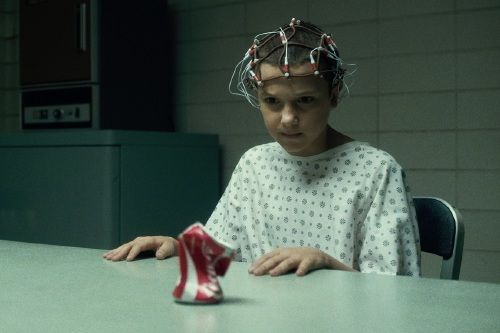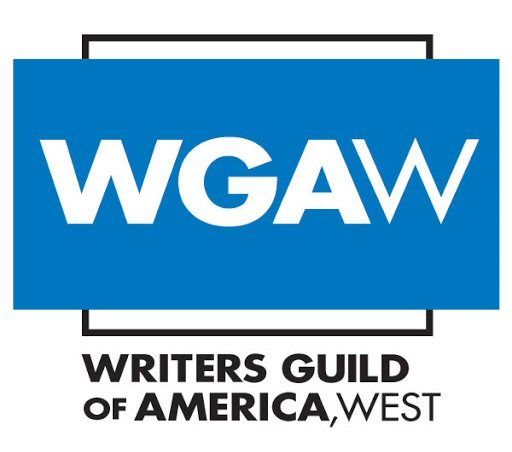If you follow film and television news, you’ve probably heard that a writers strike may be looming. And if you remember the TV season that followed the last writers strike, you’ll know why this is a scary thing. But The Writers Guild of America is prepared to strike if certain demands aren’t met, and with a deadline coming up swiftly, we could be in for the first major production shutdown since 2007.
So, here’s what you need to know about what the guild striking means for the fate of your favorite shows and upcoming movies:
Why Are the WGA Members Unhappy?
This whole notion of a strike arose during negotiations between the Writers Guild of America (WGA) and the Alliance of Motion Picture and Television Producers (AMPTP). AMPTP negotiates on behalf of all the major studios, while the WGA negotiates on behalf of the writers who actually create the content for television and film.
One of the main sticking points relates to how writers are compensated. The WGA argues that while the volume of TV content has increased, pay for writers has not. We are certainly in the age of #PeakTV, as evidenced by all the shows just sitting on your DVR that you haven’t gotten around to just yet. But even though there are more shows, a lot of these series have shorter seasons. In the traditional TV model, a writer would work on a series for 22 or 23 episodes a season and get paid per episode. Now, however, many networks have shifted to shorter and creatively tighter seasons of 10 or 13 episodes. The writers, then, are paid less because the episode order is shorter, even though the length of time they work on the show is the same.
Moreover, given that some contracts are exclusive to shows, sometimes even when a writer has finished his or her work there, he or she cannot go and work on another show—they’re contractually obligated to the series, and thus can’t double up on shows in order to make up for the compensation deficit. So a writer on Stranger Things can’t necessarily just go and work on, say, Syfy’s The Magicians while the Netflix series in on hiatus.
So as part of the negotiations with the AMPTP, the WGA is asking for increased fees for writers as well as the loosening up of some of these exclusivity contracts that ties writers to a single show year-round.
The other major point of contention are more familiar to general strike negotiations, and focus on the WGA’s health plan, which is facing a deficit, as well as paid family leave and protection of the guild’s current pension plan.
Thus far, AMPTP is unwilling to deal. So the WGA, facing a disadvantage here given that the Alliance represents the major studios, has one big option on the table: a strike that would halt any and all writing work in TV and film until a deal can be reached.
What Happens If the WGA Strikes?
The WGA recently held a vote for its members asking them if they had the authorization to call “strike” at the negotiating table. 96% voted yes, so the measure passed, and if a deal is not reached by the May 1st deadline, the current deal remains in effect until a new one is made or a strike is called.
If a strike happens, until the two sides come back to the negotiating table, all work from writers will cease on film and television projects. The last time this happened was in 2007, when the WGA was arguing for writers to get a bigger cut of digital revenue streams. The WGA had been planning for a potential strike for a long while at that time, and studios subsequently prepared for the strike, which ended up lasting from November 2007 to February 2008. During that time, new episodes of shows like 30 Rock and Friday Night Lights halted production mid-season, and Saturday Night Live went on hiatus. When shows like Late Night with David Letterman continued, they did so without writers and thus David Letterman improv’d the whole thing.
On the feature film side, movies like Transformers: Revenge of the Fallen, Quantum of Solace, and Star Trek entered production without the ability to rewrite anything or do more subsequent work on the scripts, and thus it was up to the director and actors to fill in the gaps.
So what happens this time? Well hopefully a strike doesn’t happen and AMPTP decides to fairly compensate writers. If it does, we’re at the end of the network TV season, so that regular programming likely won’t be affected too severely—many of those shows have already wrapped filming on their most recent seasons. The same goes for some prestige TV like Game of Thrones, which wrapped its penultimate season a few months back, but it will likely have to halt scripting work on the final season. But returning fall shows and new series about to go into production—including ongoing ratings juggernauts like The Walking Dead—may need to shut down as script-work halts.
The last strike lasted three months and impacted the film and TV industry for over a year, so there is pressure on AMPTP to make a deal here. If they don’t, there’s no telling how long this strike may last, or how far-reaching its effects may go.
As for who’s right and who’s wrong, keep in mind that none of your favorite TV shows or movies exist until a writer puts pen to paper. Directors, actors, and producers are important to be sure, but for a job that’s so vital to the finished product, it makes sense that writers should be fairly compensated for their work.
The TV landscape has been changing rapidly, and so too should its business model.
.






